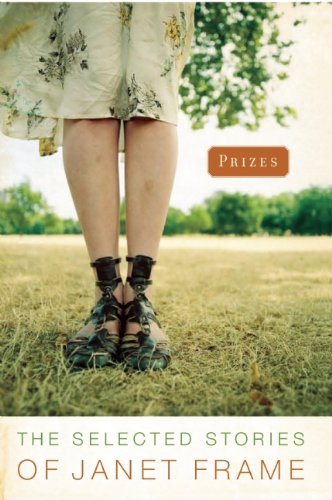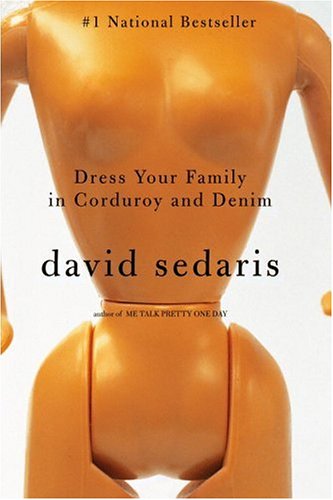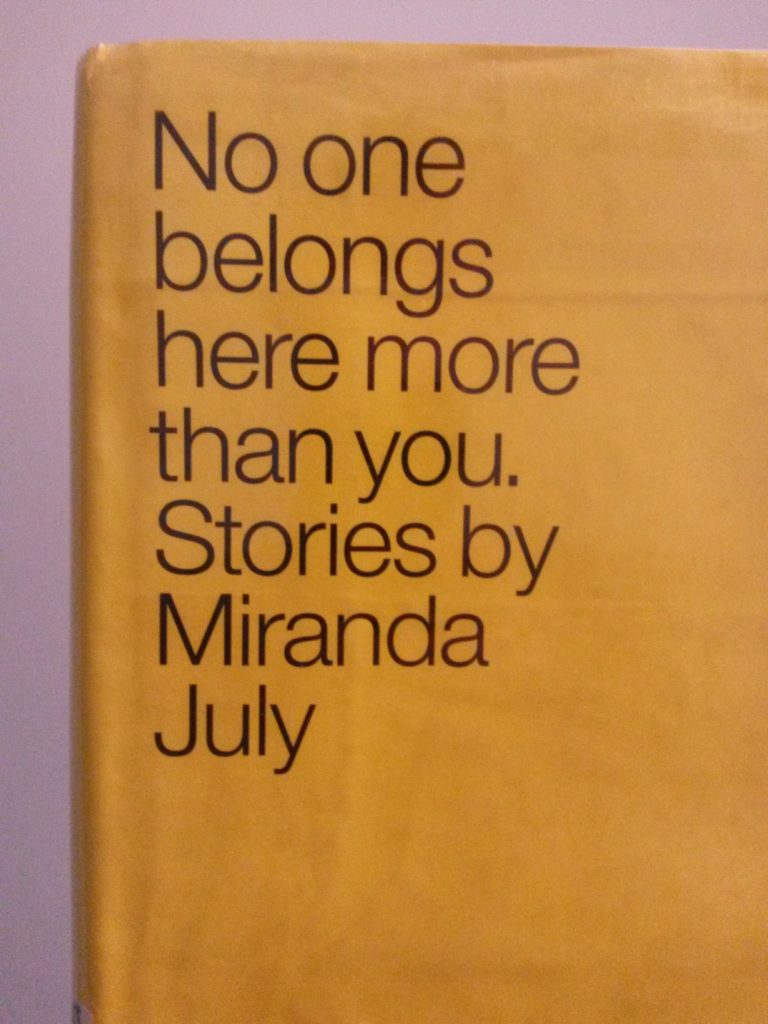 This is just fantastic. July’s short stories are so imaginative in the way she blends mundane realism with the bizarrely surreal. It feels like a modern, shabby, seedy version of magic realism. Many of the characters are strange, but still trying to get along with life in their own broken way. They seem insane, and probably are, but they still work according to their own internal logic. They are trapped in a mind-numbing suburban existence, or growing up in an extremely dysfunctional environment. The writing seems to make the real world disappear and I find myself totally absorbed in the weird, affecting lives of July’s characters.
This is just fantastic. July’s short stories are so imaginative in the way she blends mundane realism with the bizarrely surreal. It feels like a modern, shabby, seedy version of magic realism. Many of the characters are strange, but still trying to get along with life in their own broken way. They seem insane, and probably are, but they still work according to their own internal logic. They are trapped in a mind-numbing suburban existence, or growing up in an extremely dysfunctional environment. The writing seems to make the real world disappear and I find myself totally absorbed in the weird, affecting lives of July’s characters.
I have heard that July’s novel “The Last Bad Man” is a bit more conventional in style. But after reading this wonderful collection I definitely want to read more Miranda July.
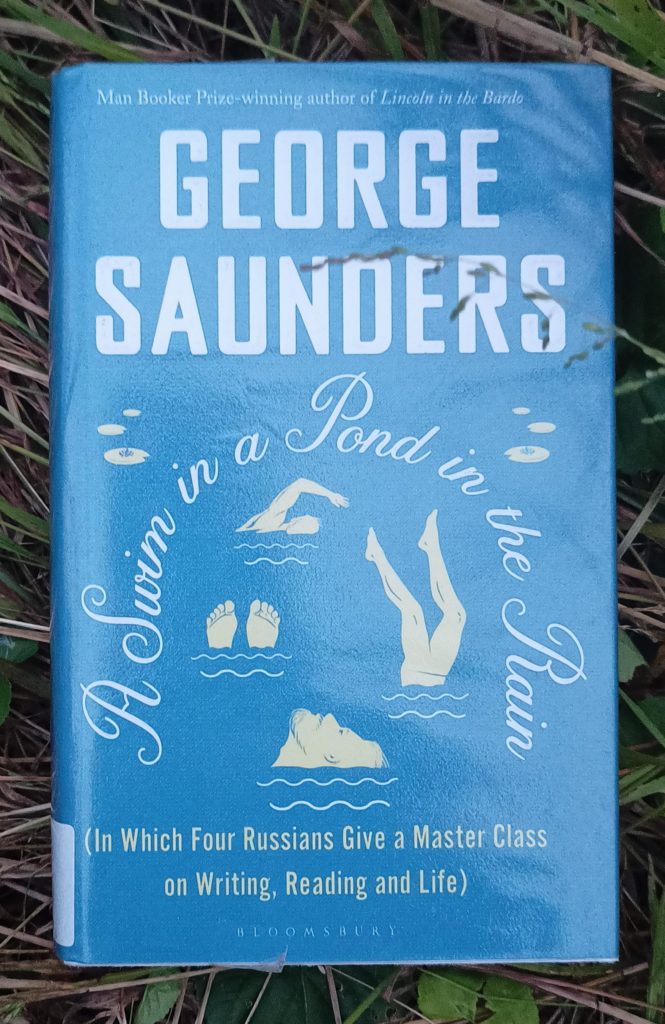
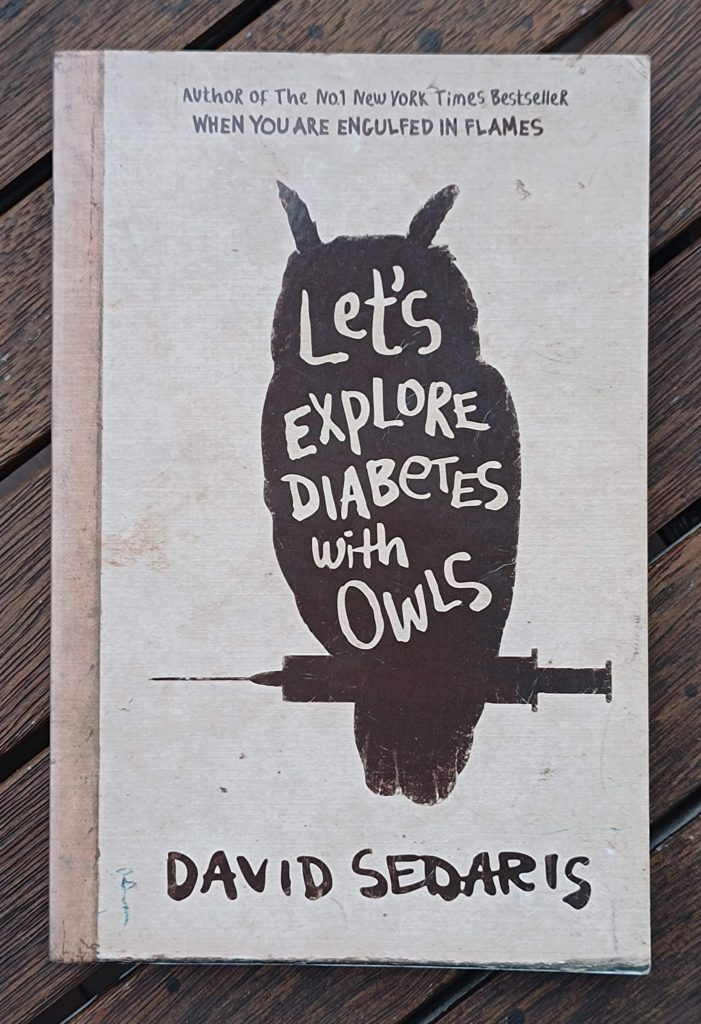

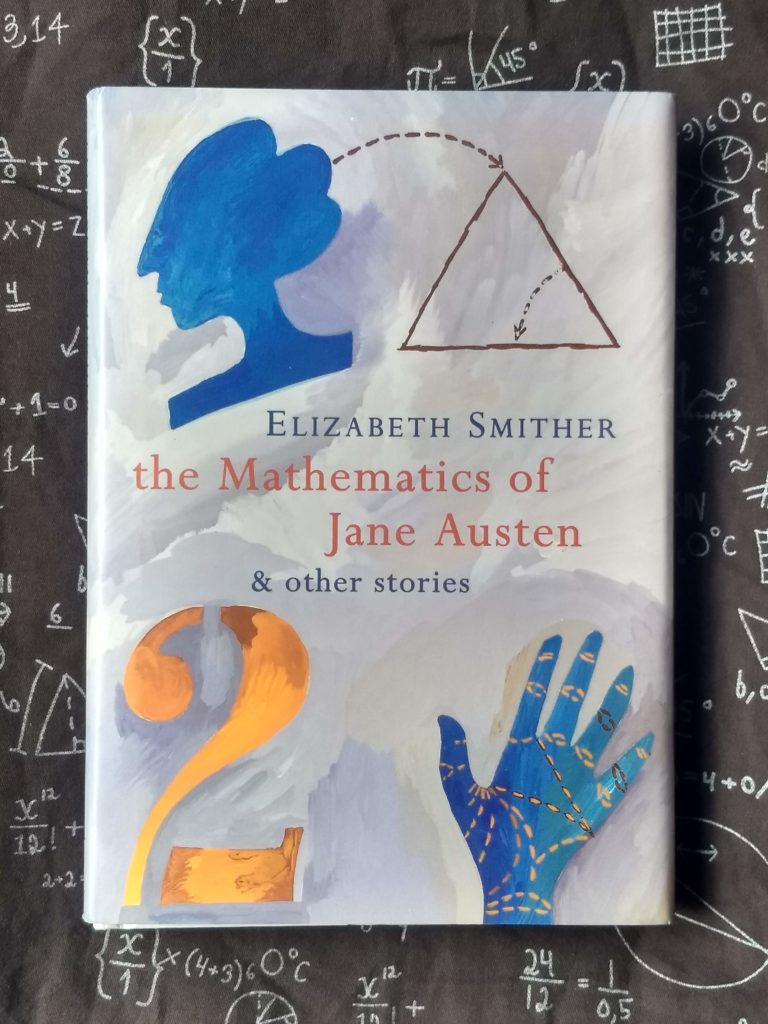
 I loved this book of short stories even though most of them don’t end especially happily. The stories are written in a variety of voices, but almost all concern young women navigating problematic relationships. (Some of the women are older; some stories focus on men; but relationships are a constant.) Reading each story feels like inhabiting the character. It’s fun to be in someone else’s skin for a few minutes.
I loved this book of short stories even though most of them don’t end especially happily. The stories are written in a variety of voices, but almost all concern young women navigating problematic relationships. (Some of the women are older; some stories focus on men; but relationships are a constant.) Reading each story feels like inhabiting the character. It’s fun to be in someone else’s skin for a few minutes.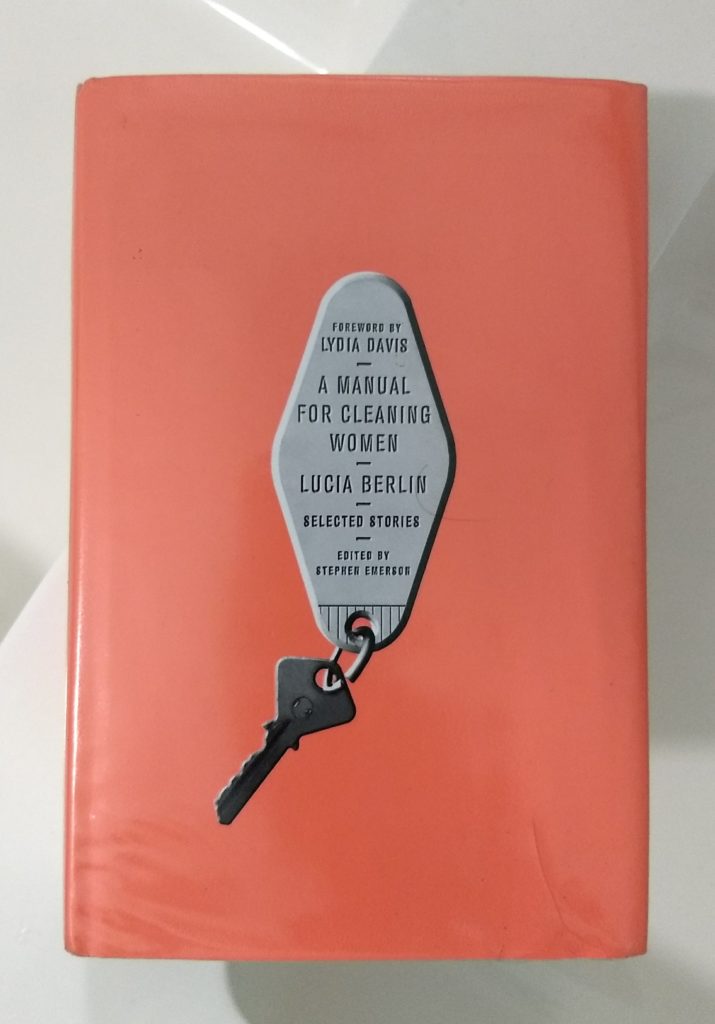 Squalor and alcoholism feature prominently in these short stories based on Berlin’s life. Many of the stories concern marginalised people: they suffer so much injustice but still manage to keep going. Even so, I wouldn’t describe the stories as uplifting.
Squalor and alcoholism feature prominently in these short stories based on Berlin’s life. Many of the stories concern marginalised people: they suffer so much injustice but still manage to keep going. Even so, I wouldn’t describe the stories as uplifting. This is just fantastic. July’s short stories are so imaginative in the way she blends mundane realism with the bizarrely surreal. It feels like a modern, shabby, seedy version of magic realism. Many of the characters are strange, but still trying to get along with life in their own broken way. They seem insane, and probably are, but they still work according to their own internal logic. They are trapped in a mind-numbing suburban existence, or growing up in an extremely dysfunctional environment. The writing seems to make the real world disappear and I find myself totally absorbed in the weird, affecting lives of July’s characters.
This is just fantastic. July’s short stories are so imaginative in the way she blends mundane realism with the bizarrely surreal. It feels like a modern, shabby, seedy version of magic realism. Many of the characters are strange, but still trying to get along with life in their own broken way. They seem insane, and probably are, but they still work according to their own internal logic. They are trapped in a mind-numbing suburban existence, or growing up in an extremely dysfunctional environment. The writing seems to make the real world disappear and I find myself totally absorbed in the weird, affecting lives of July’s characters.